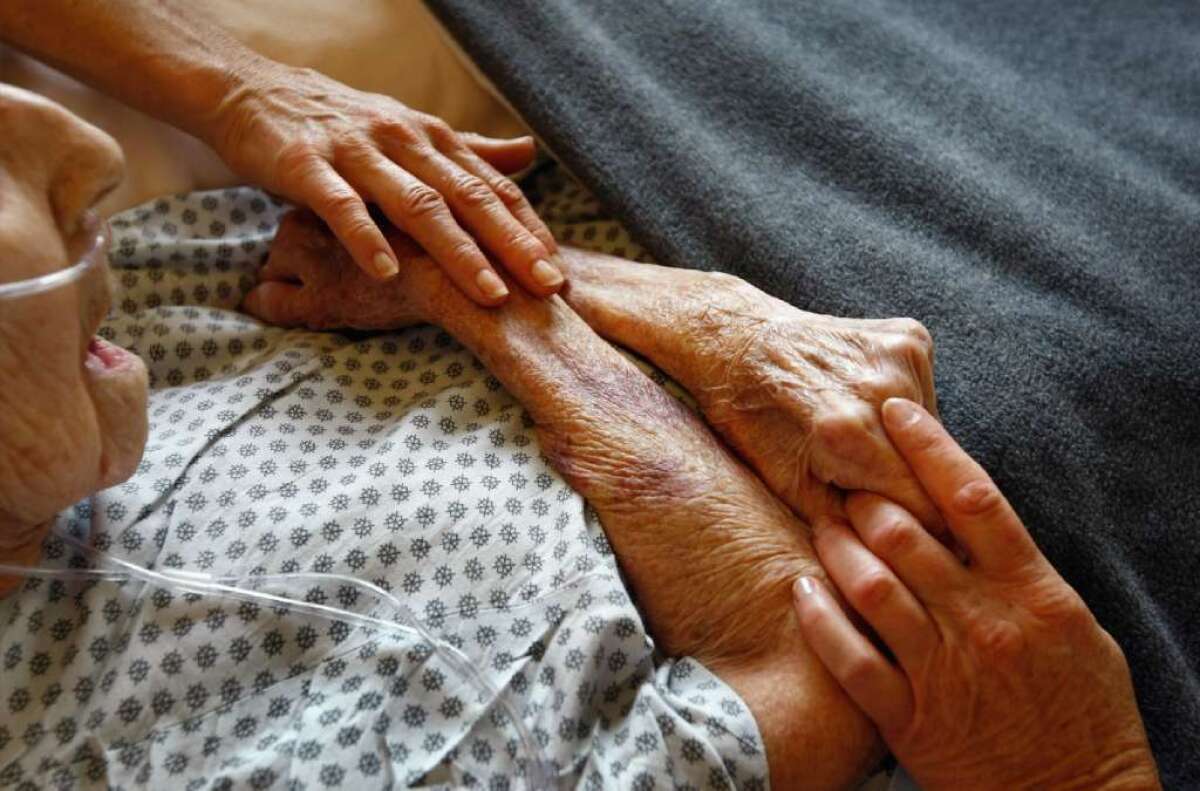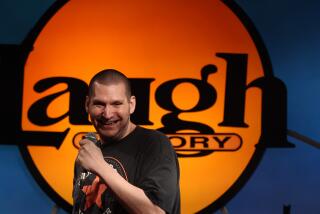Op-Ed: The man who died laughing

Even in the emergency room at Cedars-Sinai Medical Center at 5 a.m., while waiting to be seen after a fall, my 92-year-old dad knew a straight line when he heard one.
âAre you comfortable?â a nurse asked, propping him up with a pillow.
âI make a living,â he said without missing a beat.
My father, Ben Starr, was the son of immigrants who fled Russia with their senses of humor intact, and he put that cultural inheritance to good use throughout his life. Growing up in Brooklyn, he was known as âPeanutâ because of his size. But he knew how to get big laughs.
In Hebrew school, heâd wait until the teacher turned his back, then crawl out the window. The classroom laughter more than made up for the scolding he knew heâd get later from the rabbi. In flight navigation training during World War II, he used humor to break the tension when facing a make-or-break test, conducting a spontaneous rain dance spiced with Yiddish-inspired mumbo jumbo. (It poured!) And when he was too nervous to propose to my mother outright, he wove a funny story about how two people would one day get married. She went along with it, acknowledging that yes, someday they would. And they did.
Comedy made him a good living, as a writer for a wide range of popular sitcoms, and it was a huge part of his parenting. But it was at the end of his life, when his humor made everything easier for him and for those around him, that I really came to realize how important humor can be as a coping mechanism.
Whoever said âDying is easy, comedy is hardâ had it backward. As they upped my dadâs meds, the one-liners flowed. Between hits of oxygen, he did shtick with the nurses and caregivers. He warned them to keep an eye on the morphine since he might want to make a little extra money selling it on the side. He blamed just about everything on anti-Semitism, from his lousy cough to the Lakersâ losing streak. And since nurses and other caregivers enjoyed the time they spent with him, he got a lot of attention.
He had mixed feelings about dying, of course. He wanted to know where he was going and what the accommodations would be like. To play it safe, he wanted to order room service early in case he arrived hungry. He was hoping for deli food, and by that, he meant real deli food, the kind he grew up eating in New York. And a nice bowl of chicken soup couldnât hurt.
In his final weeks, we talked a lot about who he wanted to see once he got wherever he was going. He was anxious to see my mother, of course, and his parents too. âAnyone else?â I asked, expecting him to mention some of the big names heâd written for during his long career. George Burns, Jack Benny, Bob Hope, Mr. Ed. But he had someone else in mind.
âIâd like to see Abe Lincoln,â he said. I couldnât help but laugh. âAbe Lincoln? Why?â
âWhy not?â It was as good a reason as any.
One of the biggest laughs of those final weeks came when a visiting doctor arrived, a Gentile, as luck would have it, whose last name was Goy. âA doctor who makes house calls named Goy,â he said. âThatâs funny.â
It was funny. And so was my dad. Funny right up till the end.
Days before his death, he was still teaching us how to live. No matter how sick he was, or how afraid of what might come next, he showed us that while humor might not delay the inevitable, it can make the departure a little more manageable.
And what better example can a father set for his children than that?
Carol Starr Schneider writes for TV and has a daily humor blog called Short Jewish Gal.
More to Read
A cure for the common opinion
Get thought-provoking perspectives with our weekly newsletter.
You may occasionally receive promotional content from the Los Angeles Times.










